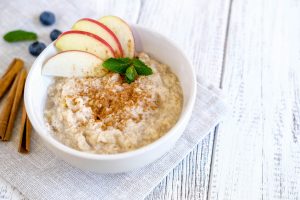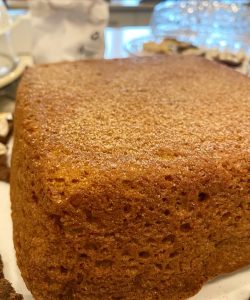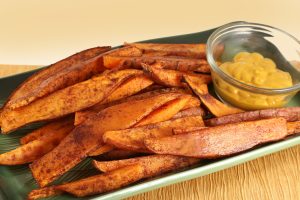
<!DOCTYPE html PUBLIC "-//W3C//DTD HTML 4.0 Transitional//EN" "http://www.w3.org/TR/REC-html40/loose.dtd“>
By Lindsey Shay | Contributor
Cinnamon ranks among my top spices due to its remarkable versatility in both sweet and savory dishes. Whether enhancing oatmeal or livening up potatoes, cinnamon infuses warmth into a wide array of meals. It wasn’t until I delved into nutrition studies that I appreciated the various health advantages that incorporating cinnamon into my diet offers.
Listed below are eight scientifically supported health benefits of cinnamon*
- Cinnamon possesses high medicinal properties.
The flavor and aroma of cinnamon stem from cinnamaldehyde, a chemical compound known for its beneficial effects on human health and metabolism.
- It’s rich in antioxidants.
Cinnamon boasts a remarkable level of antioxidants, surpassing that of many so-called superfoods. Antioxidants are crucial for protecting your cells from damage inflicted by free radicals, potentially leading to oxidative stress, which can harm DNA and essential cellular structures.
- It has anti-inflammatory qualities.
The antioxidants found in cinnamon contribute to its anti-inflammatory properties, which can help lower the risk of various diseases.
- Cinnamon may decrease the risk of heart disease.
Cinnamon is linked to a reduction in heart disease risk. Scientific findings indicate it can decrease total cholesterol levels, lower “bad” LDL cholesterol and triglyceride levels, and partially boost “good” HDL cholesterol. Additionally, it has been shown to lower blood pressure, all of which can significantly reduce heart disease risk.
- It can lower blood sugar levels and has anti-diabetic benefits.
Cinnamon exhibits potent properties for lowering blood sugar. It enhances insulin sensitivity and decreases blood sugar levels through several mechanisms, including slowing carbohydrate breakdown in the digestive system, thus reducing glucose entry into the bloodstream after meals. One compound in cinnamon even mimics insulin, significantly improving glucose absorption in cells. Research indicates that cinnamon can lower blood sugar by 10-29%, with an effective daily dose typically between 1-6 grams or approximately 0.5-2 teaspoons.
- Cinnamon may provide benefits against neurodegenerative diseases.
Neurodegenerative diseases involve the progressive loss of brain cell function or structure, with Alzheimer’s and Parkinson’s diseases being the most prevalent. Certain compounds in cinnamon have been shown to inhibit the accumulation of a protein in the brain that is characteristic of neurodegenerative diseases.
- It may help in cancer protection.
Cinnamon has been extensively studied for its potential role in both cancer prevention and treatment. Evidence suggests that cinnamon extracts could hinder cancer cell growth and limit blood vessel formation within tumors, showing toxicity toward cancer cells and inducing cell death.
- Cinnamon possesses antibacterial and infection-fighting properties.
Cinnamaldehyde, one of cinnamon’s primary active compounds, may combat various infections. Cinnamon oil has demonstrated efficacy in treating respiratory infections caused by fungi and inhibiting the growth of certain bacteria, including Listeria and Salmonella. Its antimicrobial properties may also support dental health by preventing tooth decay and reducing bad breath.
Two main varieties of cinnamon exist: Ceylon and Cassia. For maximum health benefits, Ceylon, often referred to as “True Cinnamon,” is the preferred choice.
*As with any addition to your daily diet, consult your physician beforehand.
Editor’s Note: This content is not intended to replace professional medical advice, diagnosis, or treatment, nor does it constitute medical or other professional counsel.
Here are some of my own curated and family-tested recipes featuring cinnamon

Cinnamon Roll Overnight Oats
Ingredients:
- 2 1/2 cups old-fashioned rolled oats
- 2 1/2 cups milk (I prefer oat milk!)
- 6 teaspoons Truvia brown sugar
- 1 1/2 teaspoons vanilla extract
- 1 1/4 teaspoons ground Ceylon cinnamon
- 1/2 teaspoon salt
Directions:
- In a large bowl, mix together oats, milk, brown sugar, vanilla, cinnamon, and salt. Portion the mixture into five 8-ounce jars. Seal the jars and refrigerate overnight or for up to 5 days.

Cinnamon Bread
Ingredients:
- 2 cups granulated sugar
- 4 cups all-purpose flour
- 2 tablespoons baking powder
- 1 teaspoon salt
- 2 eggs
- 2 cups fat-free milk
- 1 1/2 tablespoons cinnamon
Directions:
- Preheat the oven to 350°F. Generously spray two 1-lb loaf pans with baking spray.
- In a bowl, combine sugar, flour, baking powder, and salt; set aside.
- Beat together eggs and milk using a mixer.
- Gradually blend the dry mixture into the wet ingredients until just combined.
- Evenly pour the mixture into the pans. Sprinkle cinnamon (or a cinnamon sugar mix) on top before baking.
- Bake for 45-50 minutes, or until a toothpick inserted in the center comes out clean.

Cinnamon Paprika Sweet Potato (Baked) Fries
Ingredients:
- 3 medium-large sweet potatoes
- 1/2 tablespoon olive oil
- 1 tablespoon smoked paprika
- 1 1/2 teaspoons cinnamon
- Salt, to taste
Directions:
- Preheat the oven to 350°F and line a baking sheet with parchment paper.
- Wash and pat dry the sweet potatoes, then slice them thinly into fries or cubes as preferred.
- In a large bowl, combine the sliced sweet potatoes with the olive oil, smoked paprika, cinnamon, and salt. Toss until well-coated in the spice mixture.
- Spread the fries on the baking sheet and bake for about 40 minutes or until crispy.
*Sources:
www.Health.ClevelandClinic.org
www.Healthline.com
www.Health.Harvard.edu






